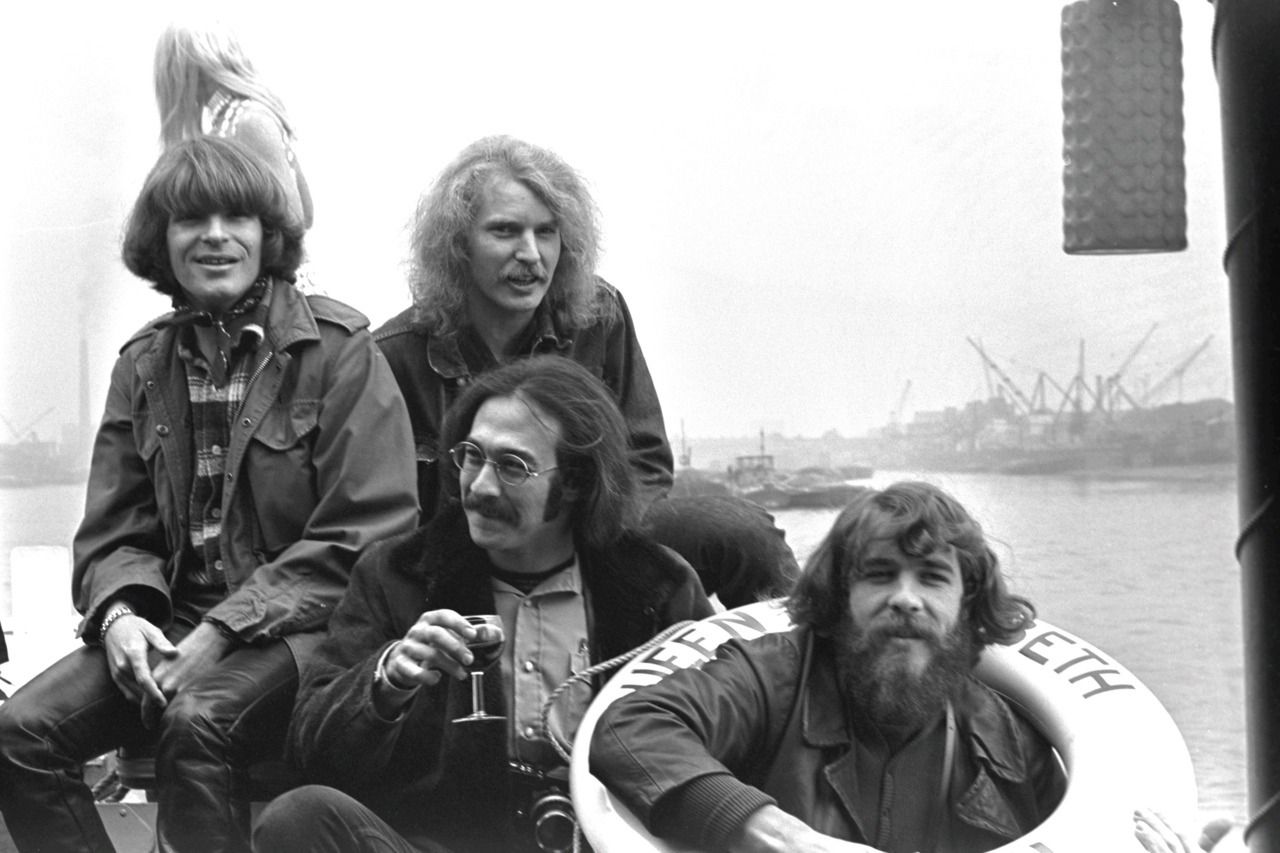
A Swamp-Rock Seance of Betrayal and Suspicion, Echoing Through the Static of a Fractured America
When Creedence Clearwater Revival released their rendition of “I Heard It Through The Grapevine” as a single in 1976, it arrived not as a fresh chapter, but as a haunting postscript — a reinterpretation of soul’s sorrow refracted through the grimy lens of swamp rock. Originally appearing in its full 11-minute form on the band’s 1970 album Cosmo’s Factory, the edited single version offered radio listeners a concentrated taste of CCR’s brooding intensity. Though not chart-topping in the way the Marvin Gaye or Gladys Knight & the Pips versions were — both achieving Top 10 status on Billboard — this single nonetheless carved out its own legacy, standing as a testament to John Fogerty’s uncanny ability to rewire established material into something darker, more elemental.
In approaching “I Heard It Through The Grapevine,” CCR did not merely cover a Motown standard; they deconstructed it, laid bare its nervous system, and reconstructed it with thick guitar tremors and an undercurrent of dread. The original song, penned by Norman Whitfield and Barrett Strong, thrived on emotional immediacy — tales of love betrayed conveyed through soulful anguish. But Fogerty and company shifted the terrain entirely. Their version slows the tempo to a crawl, replacing heartbreak with paranoia, disbelief with fury. Where Marvin Gaye sang from the vulnerable eye of the storm, Fogerty is already wandering through its aftermath — suspicious, scorched, and sleepless.
Fogerty’s voice — ragged with gravel and echo — imbues each lyric with accusatory weight: “It took me by surprise I must say / When I found out yesterday.” There is no pleading here, no hope for reconciliation. Instead, he channels raw bewilderment into every syllable, drawing out lines until they throb like open wounds. Behind him, the band churns relentlessly: Stu Cook’s bassline is hypnotic and menacing; Doug Clifford’s drumming is martial yet murky; and Fogerty’s guitar work is taut and spectral, spiraling into extended solos that seem less performance than exorcism.
The song becomes less about betrayal than about isolation — personal and cultural. Recorded during an era marred by Vietnam fatigue, political mistrust, and generational disillusionment, this version of “Grapevine” speaks to a deeper fracture. Even stripped from its original context on Cosmo’s Factory, the single carries that album’s pervasive themes: loss of innocence, alienation from authority, the decay of American ideals.
In that light, CCR’s “Grapevine” functions almost as a dirge — not just for love lost but for faith eroded. It asks us not only who we trust but whether trust itself ever truly existed. As the track fades into fuzzed-out oblivion, we are left with more than a cover; we are left with an unshakable echo from the darkest corner of the American psyche.